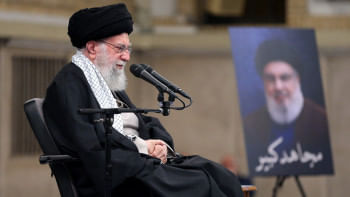Academia’s global standing: The research imperative

Recently an M Phil student, studying service management of hospital patients, emailed: "Sir, I am doing descriptive type of cross-sectional study and I am not testing any hypothesis. Other than mean and SD [standard deviation] … my main problem is I don't know what else I can do with [the] scales." The content of the email is emblematic of the quality of research conducted in academia which, unfortunately, gets reflected in regional and global rankings.
If we consider QS Rankings from 2017-2020, only the University of Dhaka showed up in the "world" rankings all four times—but in a low position. BUET showed up in the radar from 2019, again ranked low. In the "Asian" category, the total number of universities ranked was 351 in 2017; 400 in 2018; 499 in 2019; and 550 in 2020. In each of these years, the number of Bangladeshi universities in the QS list were 2, 4, 6 and 7. In contrast India had 23, 35, 76, and 96 universities in the list; Malaysia had 21, 27, 26, and 29; and Pakistan had 10, 16, 23, and 29.
Also, as editor of a journal, the most consistent challenge I faced throughout my 20-year tenure was the quality of the submitted papers. While there was a good flow of submissions, the feedback from our reviewers was disconcerting: the rejection rate was almost 70-80 percent! Quite a few submitted papers did not meet even basic standards of scholarly writing.
I bring this matter to the attention of our readers and, hopefully, policy-makers to make the case that fundamental problems remain in academia in Bangladesh that must be addressed if they are to reach global research standards, recognition in the rankings, and a growing reputation. These problems lie in many different folds and strata of the academic landscape. Herein, I note the most critical ones.
There is a serious training deficit of large numbers of our teachers and researchers as reflected in the opening paragraph. However, they continue to publish because the bar is low and consumers of research are not very discerning. Many researchers cannot go beyond simple descriptive analysis because they have not been taught otherwise. Thus, the training received by graduate students, who go on to become teachers and researchers, is of limited value, which perpetuates the cycle.
Book publications, quality journals, workshops, seminars, and conferences receive so little support that the nurture of research is virtually non-existent. Many in academia may not even comprehend what is good research. Serious effort, especially teacher development, is thus a sine qua non for academic research to reach its full potential.
Research opportunities are also conspicuously lacking. Government and industry need research and ought to engage academia as done in the western world; yet they hesitate to do so because they are uncertain of what they'll get. This is the classic chicken and egg problem; it also reflects a serious lack of a symbiotic relationship between users and suppliers of research. It is important to break out of this template.
There is also a lack of "dedicated" funding within academia. The funds that are made available are often an after-thought and not a part of any sustained research agenda. There is a clear need to establish a National Research Council in the likes of the National Science Foundation or the National Institute of Health in the US, dedicated to nurturing good research that is overseen by a solid brain pool of academics and savvy knowledge managers.
A question that demands serious attention is that of teachers asking, "What benefit will I get from doing high quality research?" Even the administrators in academic institutions, many without any research background, apparently fail to understand the value of good research. Not only do they resist spending money on research; when they do, they have no understanding of how to reward good researchers other than giving them a small salary increment! Where, then, is the incentive to pursue good, sustained, original research?
Plagiarism continues to be an issue that should not be taken lightly in academia. It leaves a dark stain on the reputation of our universities. If it can be mandated that all publications of the faculty must be placed on the web, the normative social influence of public scrutiny would likely check this practice, especially in the absence of a moral bar. The question is how many universities would have the courage to adopt this stance? Also, how many faculty members would support such a policy? And what is the record of dealing with plagiarising faculty?
It is a common refrain that senior teachers do not share their research skills. The moot question, however, is whether the senior faculty do not "want" to share or whether they "lack" the skills and do not want to expose themselves.
The lack of demanding MA, MPhil and PhD programmes is a serious obstacle to producing quality research. Those enrolled in the above programmes may not even know which programme is truly beneficial and which one is a total waste of time. It is important, therefore, to begin establishing a few research universities focusing on graduate programmes only. Over time, additional universities coming onboard with a clear research agenda may be classified as Tier-I, Tier-II or Tier-III depending on their research orientations and commitments.
Policy makers ought to address these fundamental issues and build a solid research infrastructure from which would emanate a steady stream of scholarly work to build academia's reputation. Perhaps non-resident Bangladeshi (NRB) academics can be induced to play a partnering role to improve the research environment.
In addition, there is a need to build a strong culture of peer reviewing, supplemented by an equally strong mentoring programme. Mandating publications in SCOPUS, Thomson Reuters, SJR and other scholarly publication clusters can also be a game-changer. It is also important to engage faculty in the fine art of scholarly writing. Lack of attention to this onerous task usually results in outright rejection by top-ranking international journals. Of the 10 percent invited to revise and resubmit, half are still rejected!
If we are serious about research in academia, let's start with three imperatives: attract the best and brightest to academia, reduce teaching loads from the present ridiculous levels, and generously reward researchers making a strong mark. I may note that not everyone will (want to) be a research star; so, it will be important to nurture separate research and teaching tracks. Faculty members allowed to excel in one or the other, I am confident, will build academic institutions with stellar reputations.
Dr Andaleeb is Distinguished Professor Emeritus, Pennsylvania State University, a former Vice Chancellor, and Editor, Journal of Bangladesh Studies (JBS). Email: [email protected].
This op-ed is adapted from his recent editorial in JBS.

 For all latest news, follow The Daily Star's Google News channel.
For all latest news, follow The Daily Star's Google News channel. 



Comments